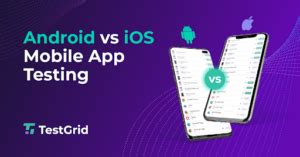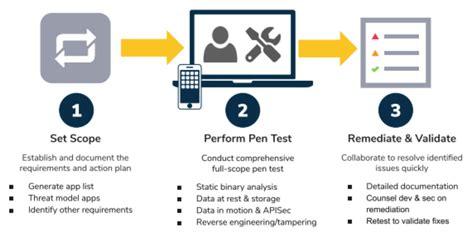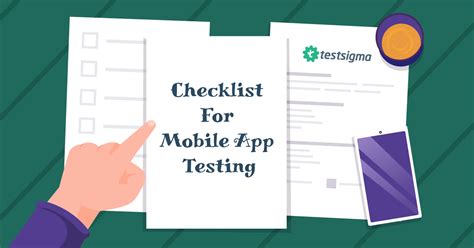ios Mobile App Testing Guide

As the mobile app market continues to grow, the importance of thorough testing for iOS mobile apps has never been more critical. With millions of apps available in the App Store, ensuring that your app stands out from the crowd requires a rigorous testing process. In this comprehensive guide, we will delve into the world of iOS mobile app testing, exploring the various techniques, tools, and best practices that will help you deliver a high-quality app that meets the expectations of your users.
Key Points
- Understanding the different types of testing, including functional, performance, and security testing
- Utilizing various testing tools, such as Xcode, Appium, and TestFlight
- Implementing automated testing to reduce manual testing efforts and increase efficiency
- Conducting thorough beta testing to gather feedback and identify issues
- Ensuring compliance with Apple's guidelines and regulations
Introduction to iOS Mobile App Testing

iOS mobile app testing is a complex process that involves evaluating your app’s functionality, performance, and security to ensure that it meets the required standards. With the ever-changing landscape of mobile technology, it’s essential to stay up-to-date with the latest testing techniques and tools. In this section, we will explore the different types of testing, including functional, performance, and security testing, and discuss the importance of each in the overall testing process.
Functional Testing
Functional testing is the process of evaluating your app’s functionality to ensure that it works as expected. This type of testing involves verifying that your app’s features and user interface are functioning correctly, and that the app behaves as expected in different scenarios. Functional testing can be performed manually or using automated testing tools, such as Appium or Xcode’s built-in testing framework.
| Type of Testing | Description |
|---|---|
| Functional Testing | Evaluating the app's functionality to ensure it works as expected |
| Performance Testing | Evaluating the app's performance to ensure it meets the required standards |
| Security Testing | Evaluating the app's security to ensure it protects user data and prevents unauthorized access |

Automated Testing for iOS Mobile Apps

Automated testing is an essential part of the testing process, as it allows you to reduce manual testing efforts and increase efficiency. There are several automated testing tools available for iOS mobile apps, including Appium, Xcode’s built-in testing framework, and TestFlight. In this section, we will explore the benefits of automated testing and discuss how to implement it in your testing process.
Performance Testing
Performance testing is the process of evaluating your app’s performance to ensure that it meets the required standards. This type of testing involves measuring your app’s response time, memory usage, and battery life, and identifying areas for improvement. Performance testing can be performed using tools, such as Xcode’s Instruments or third-party tools, such as New Relic or AppDynamics.
Security Testing for iOS Mobile Apps
Security testing is a critical part of the testing process, as it ensures that your app protects user data and prevents unauthorized access. In this section, we will explore the different types of security testing, including penetration testing, vulnerability testing, and compliance testing, and discuss how to implement them in your testing process.
Compliance Testing
Compliance testing is the process of evaluating your app’s compliance with Apple’s guidelines and regulations. This type of testing involves verifying that your app meets the required standards for user interface, user experience, and content, and that it complies with Apple’s review guidelines. Compliance testing is essential to ensure that your app is approved by Apple and available for download in the App Store.
What is the difference between functional and performance testing?
+Functional testing evaluates the app's functionality to ensure it works as expected, while performance testing evaluates the app's performance to ensure it meets the required standards.
How do I implement automated testing for my iOS mobile app?
+There are several automated testing tools available for iOS mobile apps, including Appium, Xcode's built-in testing framework, and TestFlight. You can choose the tool that best fits your needs and implement it in your testing process.
What is the importance of security testing for iOS mobile apps?
+Security testing is essential to ensure that your app protects user data and prevents unauthorized access. It involves evaluating the app's security vulnerabilities and identifying areas for improvement.
In conclusion, iOS mobile app testing is a complex process that requires a thorough understanding of the different types of testing, including functional, performance, and security testing. By implementing automated testing, conducting thorough beta testing, and ensuring compliance with Apple’s guidelines and regulations, you can ensure that your app meets the required standards and provides a high-quality user experience. Remember to stay up-to-date with the latest testing techniques and tools, and to continuously evaluate and improve your testing process to ensure the success of your app.



